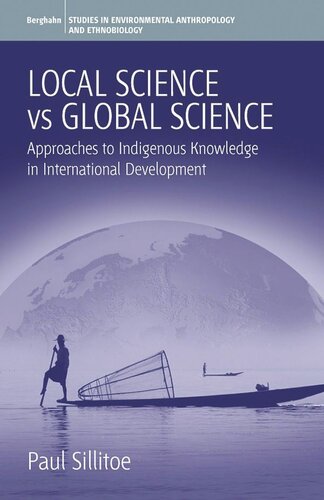

Most ebook files are in PDF format, so you can easily read them using various software such as Foxit Reader or directly on the Google Chrome browser.
Some ebook files are released by publishers in other formats such as .awz, .mobi, .epub, .fb2, etc. You may need to install specific software to read these formats on mobile/PC, such as Calibre.
Please read the tutorial at this link: https://ebookbell.com/faq
We offer FREE conversion to the popular formats you request; however, this may take some time. Therefore, right after payment, please email us, and we will try to provide the service as quickly as possible.
For some exceptional file formats or broken links (if any), please refrain from opening any disputes. Instead, email us first, and we will try to assist within a maximum of 6 hours.
EbookBell Team

4.3
98 reviewsWhile science has achieved a remarkable understanding of nature, affording humans an astonishing technological capability, it has led, through Euro-American global domination, to the muting of other cultural views and values, even threatening their continued existence. There is a growing realization that the diversity of knowledge systems demand respect, some refer to them in a conservation idiom as alternative information banks. The scientific perspective is only one. We now have many examples of the soundness of local science and practices, some previously considered “primitive” and in need of change, but this book goes beyond demonstrating the soundness of local science and arguing for the incorporation of others’ knowledge in development, to argue that we need to look quizzically at the foundations of science itself and further challenge its hegemony, not only over local communities in Africa, Asia, the Pacific or wherever, but also the global community. The issues are large and the challenges are exciting, as addressed in this book, in a range of ethnographic and institutional contexts.